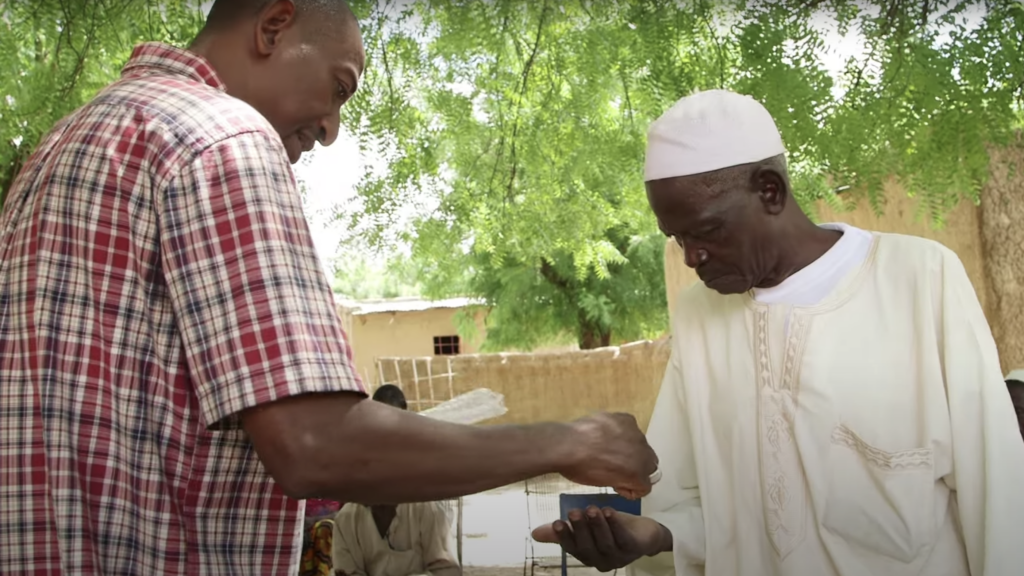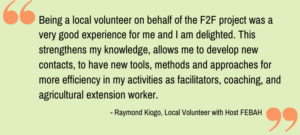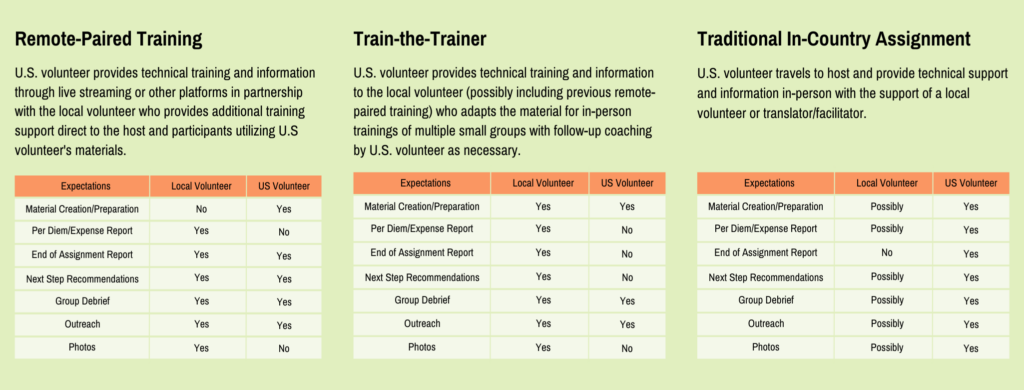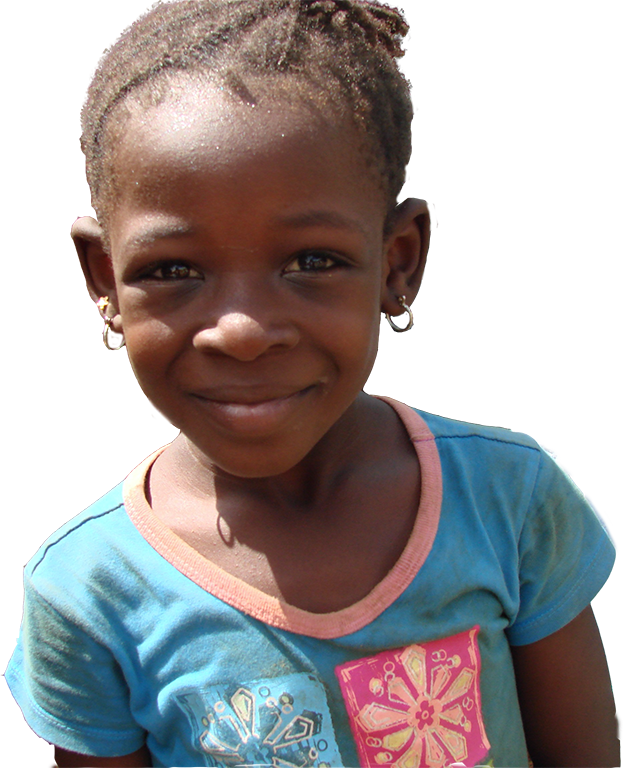
Volunteer with Farmers in Mali and Burkina Faso
Jan. 18 | 2022
Volunteers are at the heart of what we are able to accomplish with farmers in Mali and Burkina Faso. Our volunteers come from many different backgrounds, education, ages, and more. Learn more about the volunteer process and see if it fits you!
General Program Overview
The Farmer-to-Farmer Program promotes sustainable economic growth, food security, and agricultural development worldwide by providing technical training and information. Volunteers from diverse fields help people to improve productivity, access new markets, and conserve resources. Our volunteers work with farmers, producer groups, rural businesses, and nonprofits to increase food production and rural incomes as well as increase overall resilience to climate stressors. Improving technical skills through people-to-people exchanges helps empower and equip people to improve their quality of life and to earn a better living for their families.
COVID-19 Volunteer Assistance Structure
Due to the impacts of the COVID-19 pandemic prohibiting or limiting volunteer travel the F2F project is employing additional volunteering models. Differing from traditional in-person volunteer assignments, the new models develop a collaborative linkage between the U.S. volunteer, the local volunteer, and possibly a translator/facilitator. This approach is a strategic response to the ongoing uncertainty around COVID-19 transmission. These assignments will not be bound by a traditional 2 to 3-week timeframe but will be deliverable-based, with each deliverable assigned its deadline for completion.
Remote and remote-paired U.S. volunteer assignments will use precise information (description, photos, videos, video calls, brochures, etc.) for volunteer correspondence that answers technical questions, and provides livestream, prerecorded training, or other appropriate platforms. The safety of our volunteers, participants, and staff is our number one priority. Traditional in-country assignments will be reinitiated when conditions improve, or risk can be mitigated.
Below is a sample of the remote training with volunteer Neelam Canto-Lugo.
Volunteer Responsibilities
The local volunteer and country team is responsible for assignment design, preparation, and sharing documents with the U.S volunteer and participants. The training approach is developed in partnership with the U.S. volunteer. The local volunteer works directly with the host with assistance and input from the U.S. volunteer. Training may be done wholly by the local volunteer, in partnership, or remotely by the U.S. volunteer. End of assignment reports is done collaboratively. The remote support from the U.S. volunteer helps develop the training curriculum, provide supplementary training resources, fill in the gaps for technical areas, and share creative ideas and solutions.
Assignments usually last up to 2 weeks; Sometimes extending beyond two weeks due to pending follow-up visits, emails, etc. The U.S. volunteer typically spends about 4-8 hours per week depending upon the nature of the assignment and collaboration. At the discretion of the U.S. volunteer, more hours may be invested in research, the development of PowerPoints, handouts, and training materials.
Collaboration Process
The country team, both volunteers, and when appropriate host representatives meet typically by Zoom or through other internet platforms to discuss training approach, objectives, and desired outcomes at the start of the assignment. Training sessions are generally structured with informal opportunities for continued interaction, hands-on learning, and exploration of new ideas. At the end of the assignment, a wrap-up session is initiated to debrief successes, challenges, and next-step recommendations. Collaboration is the heart of the project and provides the basis for building global partnerships between people.
Structures Flexible to You
Would you like to volunteer?
Follow this link to fill out the volunteer form (at the bottom of the page). Or, send us an email at [email protected] expressing your interest! We look forward to hearing from you!
Resources
Common Pastures Website
- Volunteer and Story Blog: A section on our website devoted to sharing experiences by both our volunteers and participants through our different projects.
- The Impact You Make: Volunteers are at the heart of our mission. Learn more about the progress that has been made over the years thanks to the skill of our volunteers and the dedication of our participants.
Farmer-to-Farmer Website
- About Us: A USAID-funded program that is implemented by Common Pastures. Learn more about their goals, objectives, and other implementers around the world!
- Volunteer Information: Watch their videos that detail the volunteer experience.
USAID, About the Farmer-To-Farmer Program: More about the Farmer-to-Farmer Program.
View the original PDF document here.



